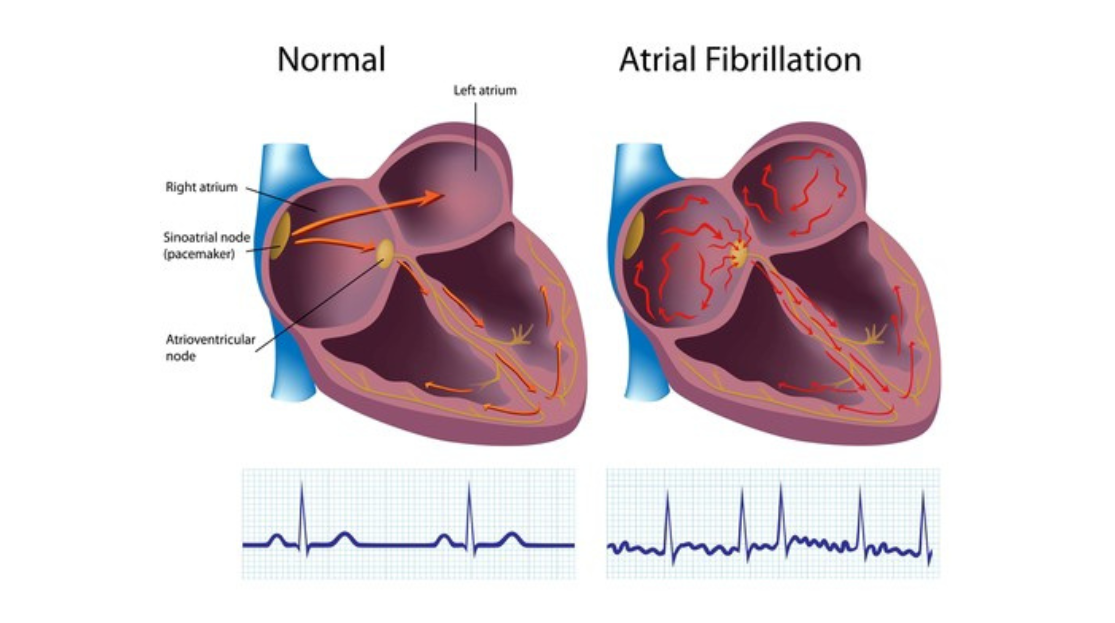If your heart’s aflutter, a poet may say the tremulous excitement you feel is because you are in love. Your doctor, however, will say your heart’s flutter could be a sign of a serious condition: atrial fibrillation.
According to the American Heart Association, atrial fibrillation (also called AFib or AF) is a quivering or irregular heartbeat (arrhythmia) that can lead to blood clots, stroke, heart failure and other heart-related complications.
The American Journal of Managed Care (AJMC) predicts that more than 12 million people will be diagnosed with AFib by 2030. That number is projected to increase to 15.9 million by 2050.
“AFib is the most common sustained arrhythmia in humans,” said Dr. Michael Hoskins, cardiologist with Lovelace Medical Group. “Roughly 1-in-5 people will develop AFib by the age of 80. This is important to note because AFib is associated with an increased risk of stroke and congestive heart failure. Factors that increase the risk of stroke with AFib include high blood pressure, diabetes, age greater than 65 years and vascular disease. Females may also be at an increased risk of stroke.”
Symptoms of AFib vary dramatically but may include the following:
· Palpitations
· Heart flutters
· “Racing heart”
· Sensation
· Fatigue
· Dizziness
· Shortness of breath and anxiety
· Weakness
· Faintness or confusion
· Chest pain or pressure – *You may be having a heart attack. Call 911 immediately.
“Some patients with AFib have no symptoms and are surprised to discover they have this condition,” said Dr. Hoskins. “When AFib is diagnosed, treatment is often focused on restoring and maintaining normal heart rhythm and stroke prevention. The treatment course may vary for each patient, so you and your physician should discuss the best options for you.”
Watch an animation of Atrial Fibrillation.
If you have any of the following conditions/risk factors, especially the first two, you have a higher risk for AFib:
- Advancing age
- High blood pressure
- Obesity
- European ancestry
- Diabetes
- Heart failure
- Ischemic heart disease
- Hyperthyroidism
- Chronic kidney disease
- Heavy alcohol use
- Enlargement of the chambers on the left side of the heart
AFib can be treated with:
- Medications to control the heart’s rhythm and rate
- Blood-thinning medication to prevent blood clots from forming and reduce stroke risk.
- Surgery
- Medication and healthy lifestyle changes to manage AFib risk factors
There are steps you can take to prevent or help treat AFib.
“Regular exercise (walking is great!), weight loss and limiting intake of alcohol and sodium are great things to keep in mind,” said Dr. Hoskins. “If you snore regularly or are tired when you get up in the morning, you should be screened for sleep apnea, which is a common cause of AFib. Most importantly, seek treatment from a physician who specializes in AFib treatment who will help you get on the path to treating your arrhythmia.”
Learn more today by visiting hearthospitalnm.com.

